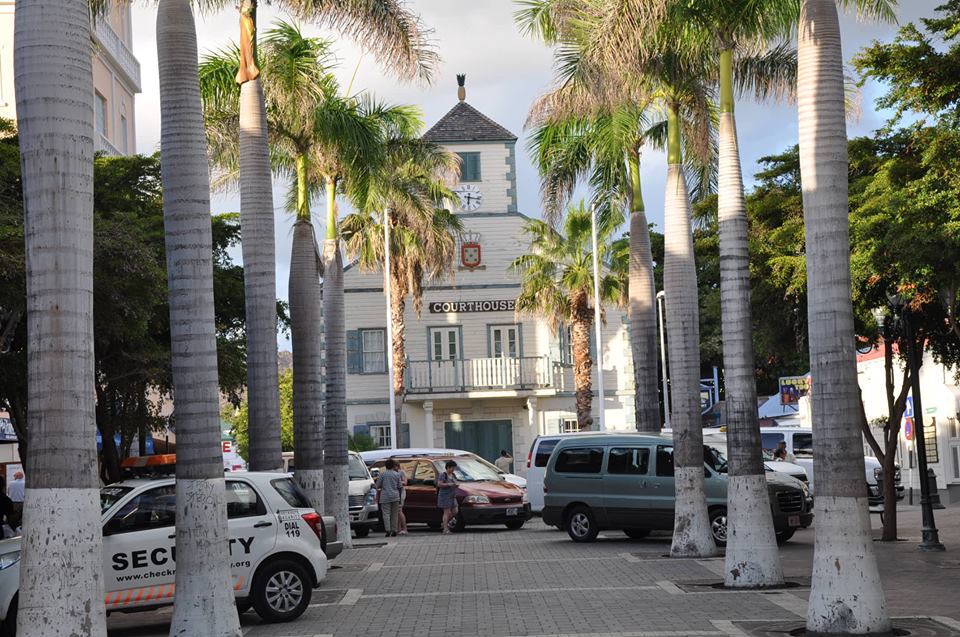Court declares lawsuit Pro Soualiga Foundation inadmissible

PHILIPSBURG – The Court in First Instance has declared the Pro Soualiga Foundation inadmissible in its injunctions against the state of the Netherlands and its Ministry of Home Affairs and Kingdom Relations. The foundation wanted the court to forbid the Netherlands to establish the consensus kingdom law Reform Entity and to prohibit that the state uses the Kingdom Charter against St. Maarten.
StMaartenNews.com reported already in August, shortly after the foundation had submitted its petition to the court that the demands stood on shaky grounds. But the court did not even get around to a judgment of the arguments because the foundation failed to establish that is has a direct interest in its demands. The demands also lack urgency, the court ruled.
The protection of the interests the foundation claims to represent must be in line with its articles of incorporation, the court ruling states. But because the foundation failed to submit these articles the court was unable to establish its statutory objectives.
The court ruling points out another requirement that is needed to justify a lawsuit. “The foundation must have undertaken actual activities to pursue the interests that appear from its articles of incorporation. Other than initiating the procedure at hand there have not been such activities.”
The civil code also states that a party is inadmissible if it has insufficiently attempted to achieve its objectives through negotiations with the defendant. The court concluded that the foundation has failed to do this.
In a letter dated August 17 the foundation summoned the state to stop with the consensus kingdom law Reform Entity. It gave the state seven days to respond. On August 21, the state responded that it needed more time and on August 31 the foundation filed the lawsuit.
“The letter of August 17 does not contain a reasonable attempt (to negotiate),” the court ruling states. The letter contains a summons to stop with the consensus kingdom law and to respond within seven days. That term is unreasonably short.”
The foundation also failed to establish that its own interests are at stake as a justification for the lawsuit. “That has not been stipulated and it has not transpired either,” the ruling states.
The foundations arguments that underpin its urgent interest in the lawsuit also failed.
“The foundation claims that the state is about to implement the draft proposal of kingdom law. There is no evidence of that. Even better, the country (St. Maarten) has not agreed with the content of the draft proposal of kingdom law and with the decision to send it for advice to the kingdom Council of State. This law requires the approval of the countries to which it applies. The formal legislative process has not even started yet, let alone that they are at the verge of implementing the law. This means that the foundation’s demands are not pressing.”
For good measure the court adds that, even if the foundation would have been admissible in its demands, they would not have been granted. The foundation’s demand amounts to requesting that the court forbid the state to implement the consensus kingdom law. “The court is not allowed to intervene in this process of political decision making,” the ruling states.
The foundation claimed in its petition to the court that “the Kingdom Charter and the Kingdom of the Netherlands have not been established because the general assembly of the United Nations has refused to include the following in its resolution 945X of December 15, 1955: 1. The people of the Netherlands Antilles have exercised their right to self-determination; 2. The people of the Netherlands Antilles have achieved a full measure of self-government; and 3. Chapter XI can no longer be applied to the Netherlands Antilles.”
These arguments are becoming increasingly stale, because the court ruled already on these matters on October 22, 2019 when Clyde van Putten and four other members of the Island Council and the Executive Council of Statia attempted to have the Law Public Entity BES (WolBES) and the Law Public Finances BES (FinBES) declared unlawful. Parts of this ruling also apply to St. Maarten.
This ruling refers to UN resolution 1514 about self-governing: “Non-self-governing territories can be said to have reached a full measure of self-governance through free association with an independent state.”
About the Kingdom Charter this ruling had the following to say: “Statia has reached a full measure of self-governance in 1954.” This appears also from UN resolution 945 which states among other things: “Takes note of the documentation submitted, and of the explanation provided, to the effect that the peoples of the Netherlands Antilles and Suriname have expressed through their freely elected representative bodies, their approval of the new constitutional order, and takes note also of the opinion of the government of the Netherlands.”
The court ruled furthermore that Statia, as part of the Netherlands Antilles, reached its full measure of self-governance in 1954 when the Kingdom Charter was established. “It is a fact that the population of Statia, as part of the Netherlands Antilles, has exercised its right to self-determination during the establishment of the Kingdom Charter. It has freely chosen not to become an independent state but to become part of the legal order within the kingdom, as established in the Kingdom Charter.”


























